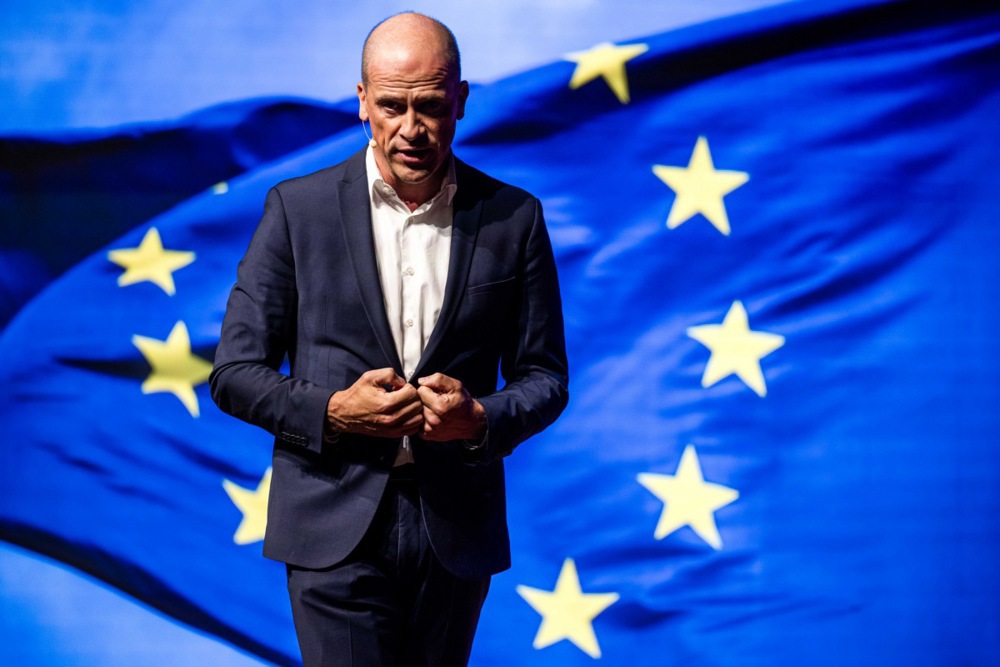The Dutch caretaker government is preparing to dismantle its controversial carbon emissions tax on major industrial companies, using a legal workaround to avoid a European fine.
According to the newspaper De Telegraaf today, the 2026 budget documents include €650 million in subsidies to fully offset the tax’s financial impact, leaving it in place on paper but stripping it of any real effect.
Industry sources described the move as the end of a “perverse” policy that unfairly penalised Dutch firms, while political pressure was mounting ahead of the October general election.
Liberal VVD climate minister Sophie Hermans had previously warned parliament that scrapping the tax outright risked breaching European Union obligations under the Fit for 55 package, which commits member states to cutting emissions by 55 per cent by 2030.
According to De Telegraaf’s sources, Brussels rules prevent the government from abolishing the levy altogether, a step that could trigger a €1.2 billion fine. Instead, the carbon charge will remain in theory, but with the rate lowered to such an extent — combined with the €650 million in subsidies — that it will no longer bite in practice.
The risk is heightened because the Netherlands included the levy in its national Recovery and Resilience Plan, a prerequisite for claiming billions in EU coronavirus recovery funds. Any deviation from that plan could expose the country to significant financial penalties.
The CO₂ tax, introduced on January 1, 2021 under the Carbon Tax Act, applies to emissions exceeding the EU Emissions Trading System (ETS) benchmarks. Designed to cut industrial emissions by 14.3 million tonnes by 2030, it supplements the ETS by taxing “avoidable” emissions at rates starting at €30 per tonne in 2021 and rising to €125 for sectors such as steel and chemicals by 2030.
The Dutch Emissions Authority enforces the measure, with revenues earmarked for “green” transition projects.
Critics, though, have long branded it “perverse” for distorting competition in Europe, where many rivals face lower or no comparable levies, fuelling fears of “carbon leakage” to countries such as China and India.
Industry leaders welcomed the policy shift. “This perverse tax has distorted competition and delayed investments,” said a spokesperson for VNCI, the Dutch chemical industry association, noting that it added up to 30 per cent to ETS costs over 2025.
A 2023 PwC study commissioned by the Ministry of Economic Affairs found only limited evidence of carbon leakage but did highlight the financial strain on firms unable to pass costs on to customers.
Households, meanwhile, have carried a heavier burden. Figures from Statistics Netherlands show that in 2023 they faced an effective carbon rate 2.5 times higher than businesses — €88 per tonne — spurring debates over fairness.
Environmental groups condemned the government’s decision, calling it “a betrayal of climate goals” and warning it undermines the Dutch Climate Act’s pledge to reach net zero by 2050. The levy only became fully operational in 2024, once emissions exceeded free allowances.
Separately, the ministry has extended a subsidy programme for industry, the so-called IKC-ETS scheme, intended to prevent production, jobs and emissions from shifting outside the EU due to high electricity costs. Extra funding is now being allocated, it said.
The tax announcement came alongside other budget leaks, including €430 million from the €20 billion National Growth Fund earmarked for tech innovation through the European Tech Champions Initiative.
Together, the measures reflect the outgoing Schoof Cabinet’s emphasis on economic resilience.
The Farmer Citizen Movement (BBB) also secured concessions, notably the retention of low-tax “red diesel” for farmers, worth €140 million a year.





